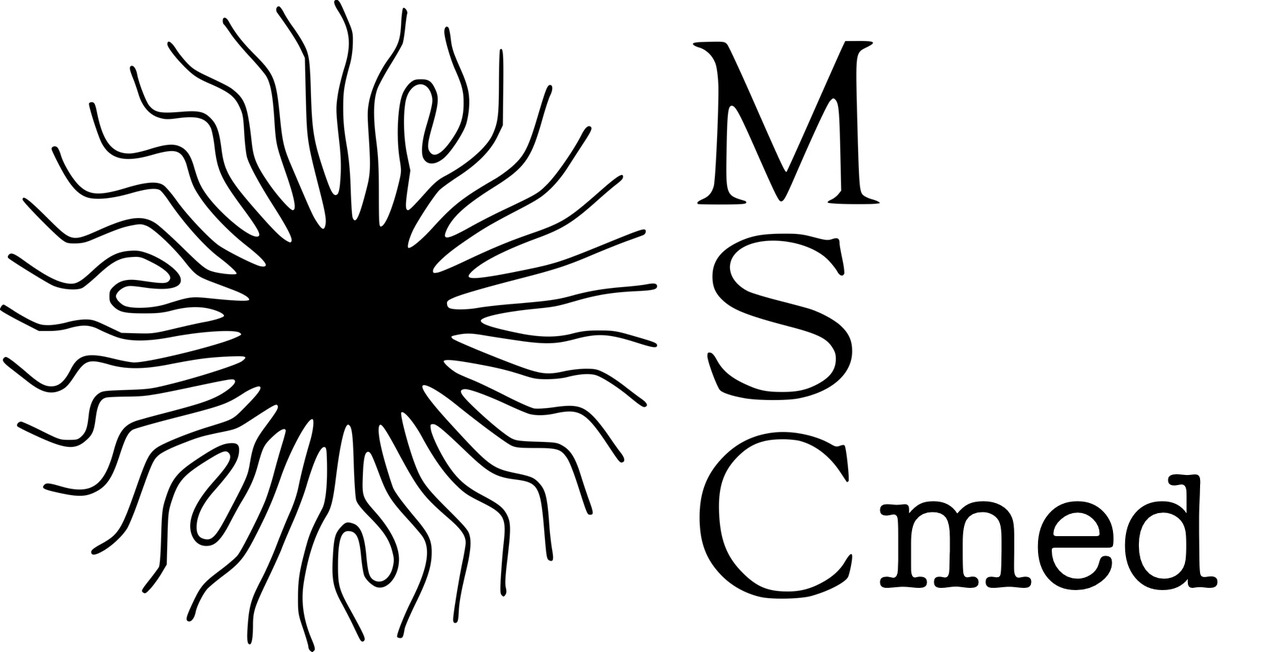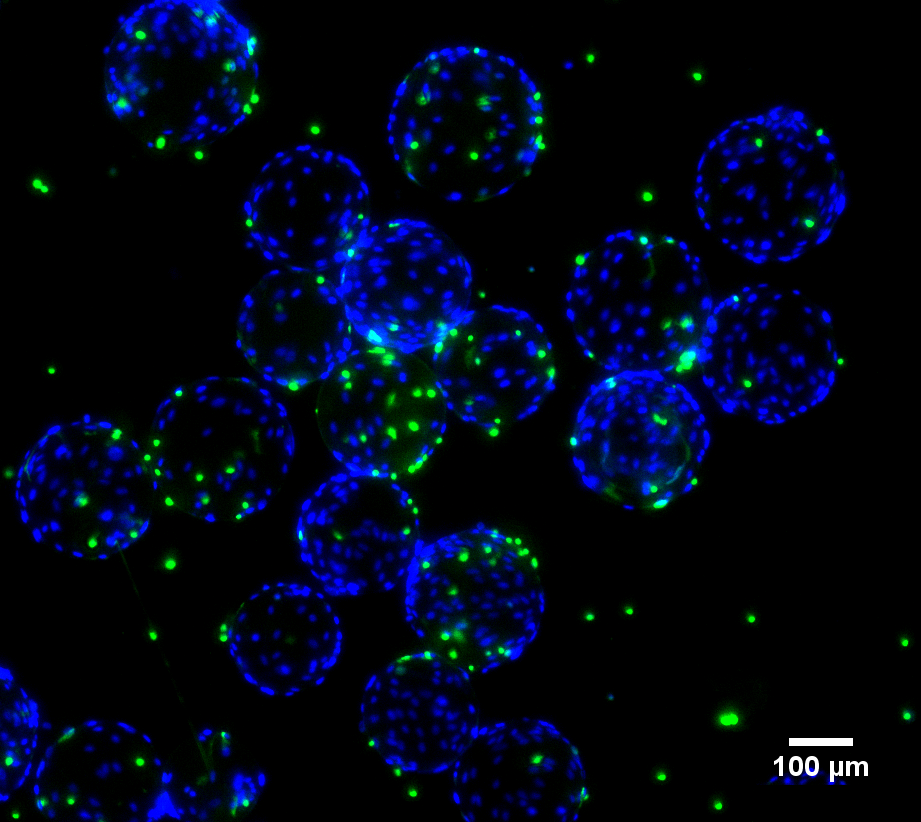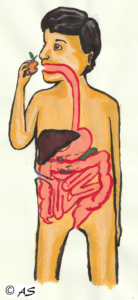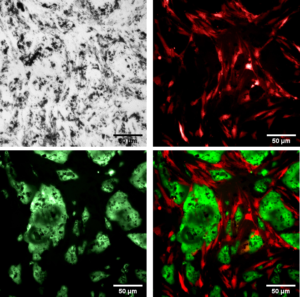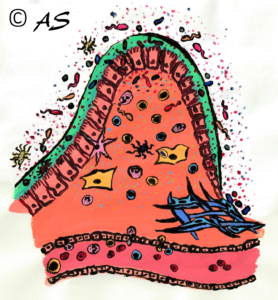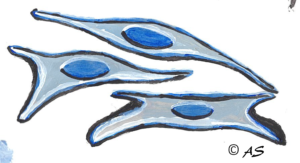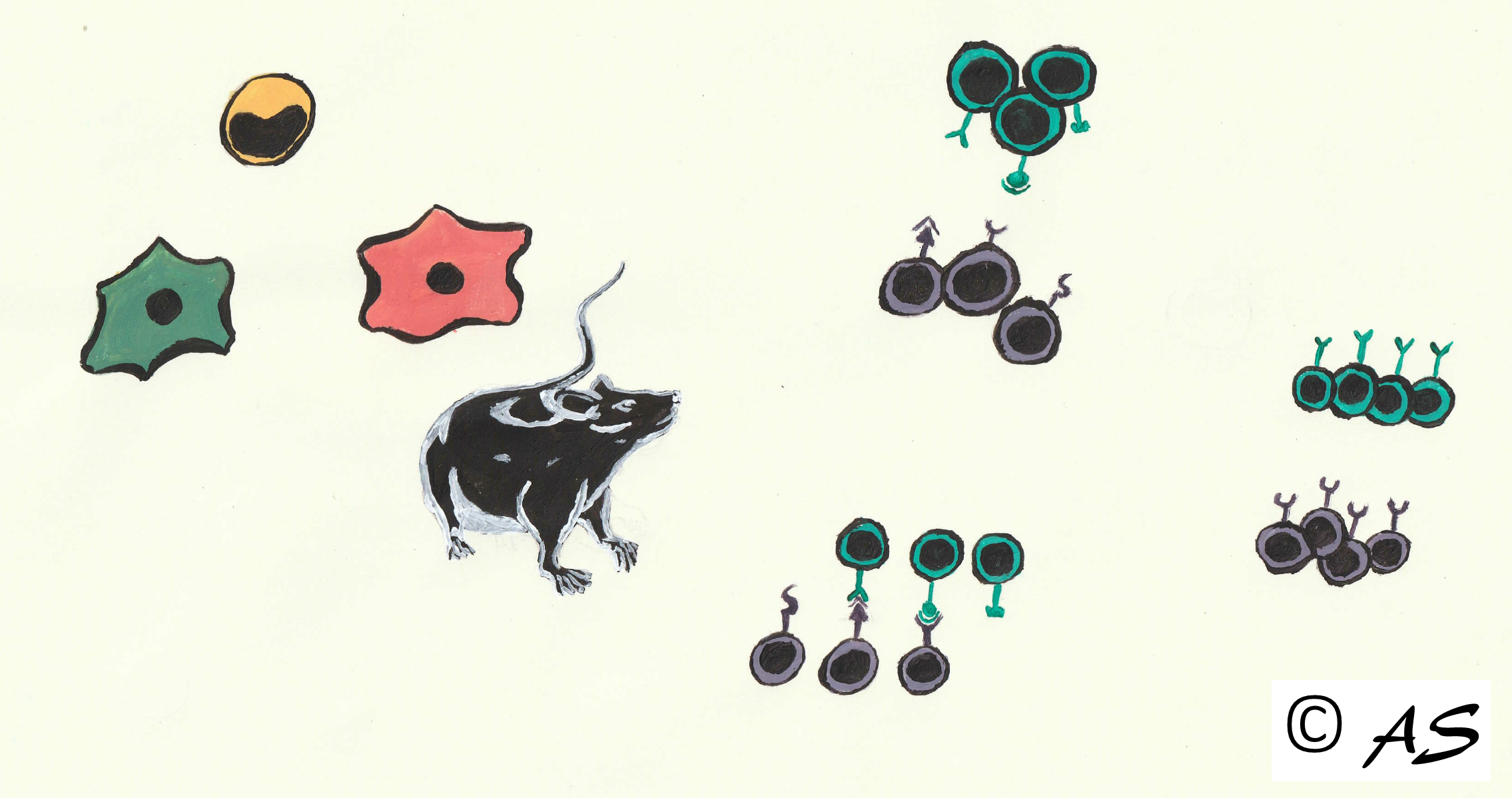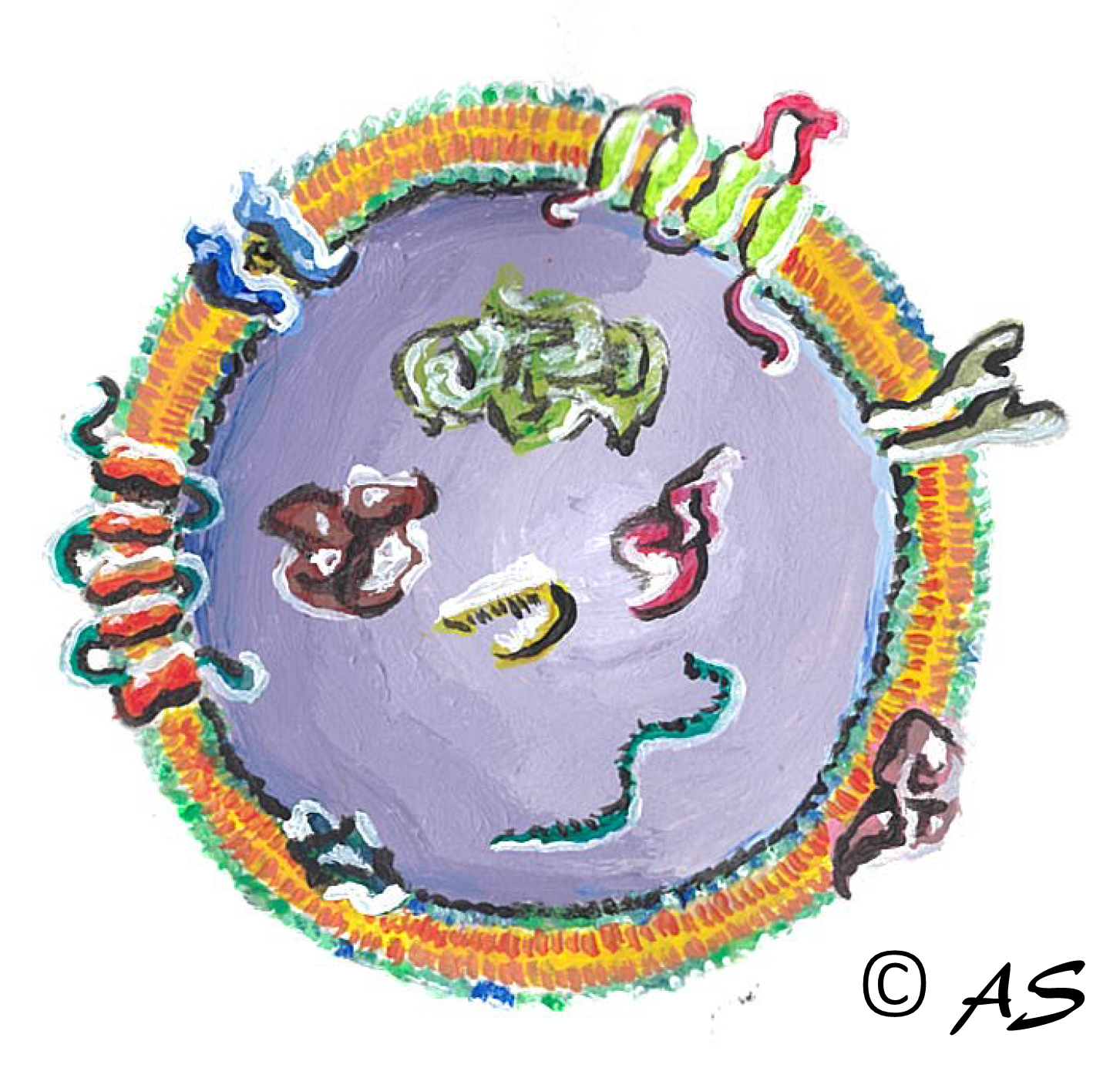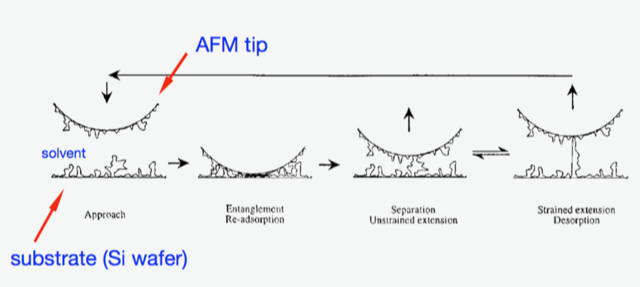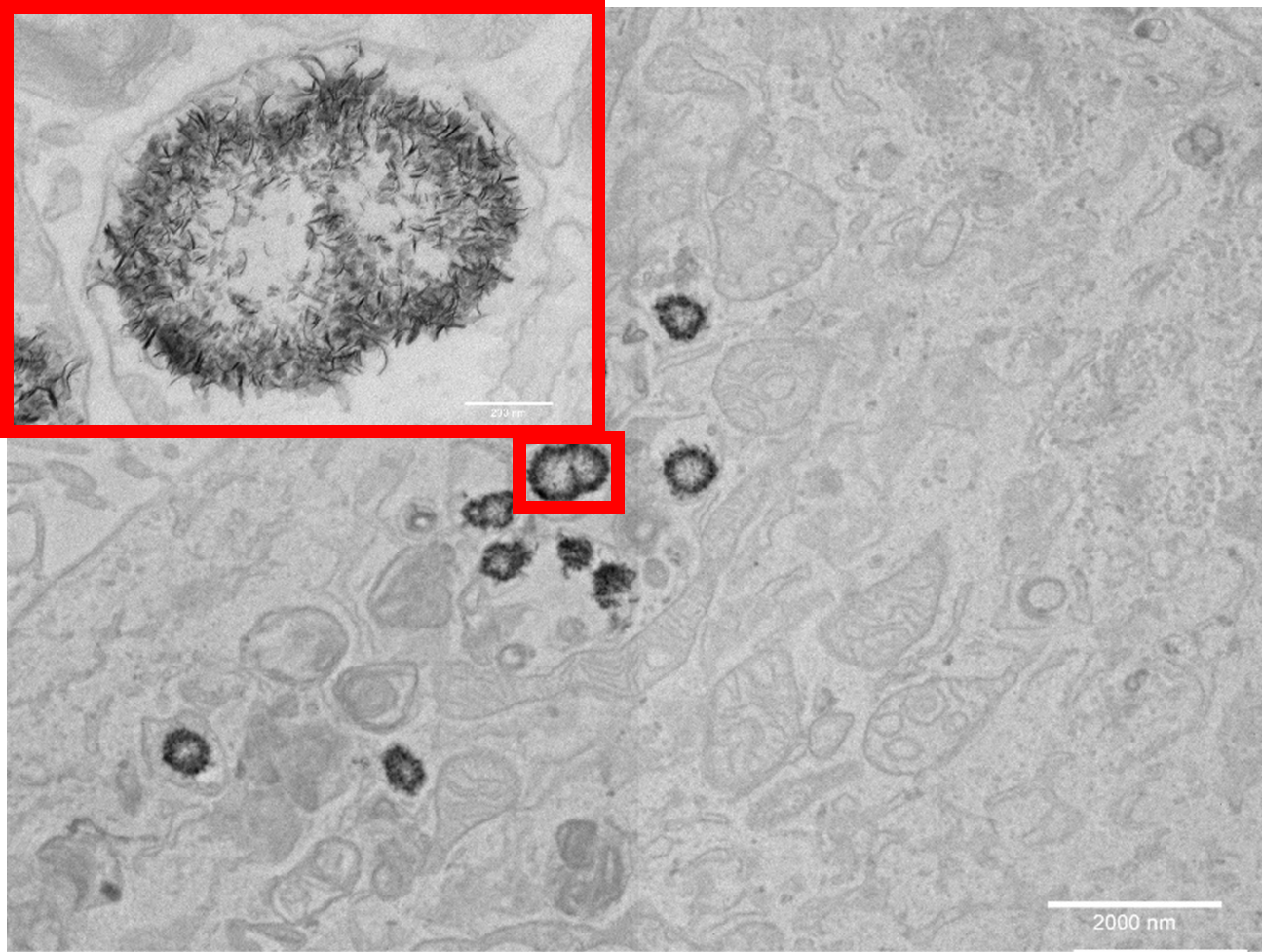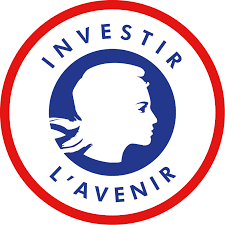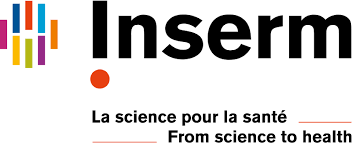MSC – Med
MSC Med is a new interdisciplinary antenna from MSC lab (Matière et Systèmes Complexes, Université de Paris, CNRS UMR7057) dedicated to bioengineering and translational research. MSC-Med is located on Campus Saint Germain, 45 rue des Saints Pères (3rd floor) and affiliated to the UFR des sciences fondamentales et biomédicales, Faculté des Sciences.
MSC Med was created in 2018 to foster the merger of fundamental research, multidisciplinary training and entrepreneurship with the aim to promote biomedical innovation from bench to bedside. Our main goal is to envision and translate to the clinic novel diagnostic and therapeutic approaches based on nanomedicine, biotherapies and bioinspired technologies for precision medicine and personalized care.
Research topics in brief
We are interested in all the physical stimuli and cues (mechanical, magnetic, electric, optical, thermodynamical stimulation, exposure to nanoparticles…) that modulate or modify the behavior of human cells and tissues during development (embryogenesis), aging and pathogenesis (cancer, inflammation, nanotoxicology…). We are looking for disruptive biomimetic treatments for regenerative medicine and cancer therapy, based on cell-derived extracellular vesicles (EVs) and other bioactive nanotherapeutics. We believe on EVs as the next generation biotherapies and as a safer and affordable alternative to cell therapies. We are also very interested in studying the fate of nanoparticles and their potential in nanotherapies.
MSC-MED is pioneering breakthrough technologies for massive bioproduction, engineering and multimodal characterizations of extracellular vesicles and hybrid nanovectors, as well as fundamental understanding of the mechanisms of EV biogenesis and intercellular communication. MSC-MED launched in 2020, with the Region Ile de France and IDEX Université de Paris the first French EV facility and center of expertise (IVETh Core Facility) based on innovative and high-throughput bioproduction, analytical methods and data sciences to push EV-based therapy to the clinic. To this purpose, we launch a thematic group called EVOLVE.
MSC-Med hosts two spin-off companies: EVerZom created in 2019 to develop large-scale production and engineering of clinical grade EV and Evora Biosciences to translate EV-based therapy combined to a thermoresponsive hydrogel for fistula therapy.
We are a multidisciplinary group, gathering physicists, biologists, pharmacists, chemists, data scientist, engineers and entrepreneurs.
MSC Med and the IVETh facility benefits from the support of Université de Paris, IDEX UP, CNRS, INSERM, Region Ile de France, European Union (ERC, FET-Open), and several grant agencies and foundations (ANR, INCA, ANSES, ARC, VLM…).
We are constantly looking for highly motivated and highly skilled researcher and students. Do not hesitate to contact us.
News
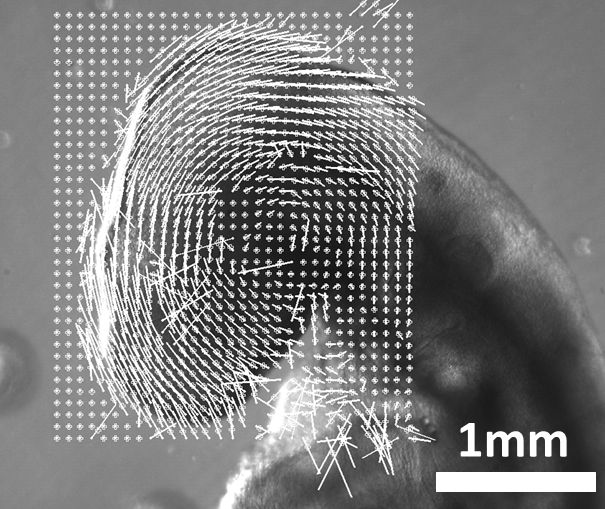
Une avancée importante dans la compréhension de l’origine de l’homme
L’origine de l’homme est une question importante, une des plus passionnantes scientifiquement. Les travaux sur cette question sont essentiellement des travaux de paléontologie, d’une part, et des travaux de paléogénomique d’autre part. Cependant, depuis longtemps une autre école existe, celle de l’Inside story, qui avance l’idée que l’évolution de l’homme est à chercher à l’intérieur de l’homme lui-même. Selon certains paléontologues, des contraintes mécaniques au développement existeraient, qui canaliseraient l’évolution et rendraient quelque chose comme un humain inévitable, dans le long terme. Une expérience originale de stimulation électrique du développement embryonnaire vient confirmer cette hypothèse.
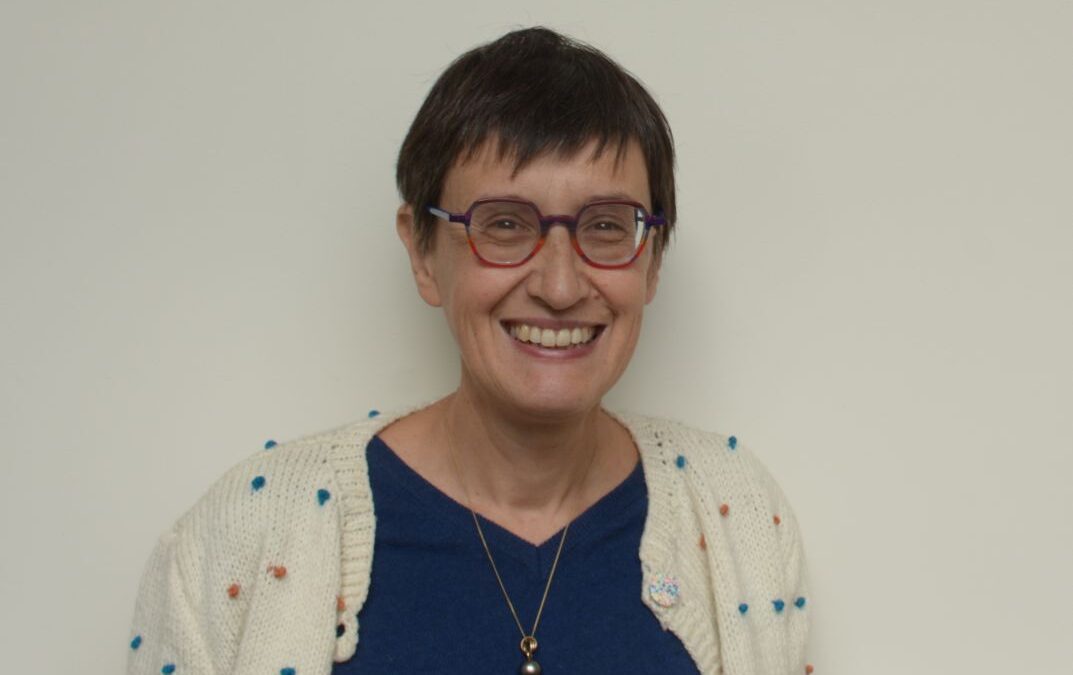
Florence Gazeau reçoit la Médaille d’Argent du CNRS
Florence Gazeau, Directrice de recherches au CNRS, directrice adjointe du Laboratoire Matière et Systèmes Complexes, et chef d’équipe MSC-med, implantée à l’école de médecine, vient de recevoir la Médaille d’Argent du CNRS pour l’ensemble de ses travaux.
Kick-off meeting of the PEPR Beacter-Ev-Booster project
We were extremely thrilled to launch the project Bacter-EV-Booster (~3.5 M EUR) funded by France2030.
Seminar – « Characterization of mucosal viral immune responses and their modulation by natural polyamines »
Seminar by Nikaïa Smith, December 5th 2023, 12pm, Salle des thèses. Topic: "Characterization of mucosal viral immune responses and their modulation by natural polyamines"
Seminar – « Allying Chemistry and Biology to Tackle Epigenetics in Human Diseases »
Seminar by Paola Arimondo, November 21st 2023, 12pm, Lavoisier C. Topic: "Allying Chemistry and Biology to Tackle Epigenetics in Human Diseases"
Vincent Fleury invité à la « Science CQFD » sur France culture
Depuis quelques années, des équipes de biologistes prétendent se rapprocher de la fabrication d’embryons synthétiques, à partir de cellules souches. Ces travaux posent des questions scientifiques, juridiques et éthiques. Vincent Fleury en débattra le 23 novembre vers 16h sur France culture.
Seminar – « Raman Bioimaging of Photosynthetic Microorganisms: New Opportunities and Challenges for Raman Spectroscopists »
Seminar by Peter Mojzeš, 16th November 2023, 2pm30, Salle des Thèses 3rd Floor. Topic: "Raman Bioimaging of Photosynthetic Microorganisms: New Opportunities and Challenges for Raman Spectroscopists" Confocal Raman microscopy, a method combining molecular specificity...
Seminar – « Technologie µLAS pour l’analyse haute sensibilité et la purification de l’ADN: application à l’ADN circulant dans le sang et nouveaux enjeux associés aux vésicules extracellulaires »
Seminar by Aurélien Bancaud, 14th November 2023, 12pm, Salle des Thèses 3rd Floor. Topic: "Technologie µLAS pour l'analyse haute sensibilité et la purification de l'ADN: application à l'ADN circulant dans le sang et nouveaux enjeux associés aux vésicules...
Seminar – « Peptidic Bioactivable AuNCs for Biosensing and Extracellular Vesicles or Cellular Labeling » and « Extracellular Vesicles in seminal fluids, their morphological analysis, and size in healthy patients and others with two pathologies. »
Seminar by Valérie Marchi and Célia Ravel, 7th November 2023, 12pm, Salle des Thèses 3rd Floor. Topic: "Peptidic Bioactivable AuNCs for Biosensing and Extracellular Vesicles or Cellular Labeling" and "Extracellular Vesicles in seminal fluids, their morphological...
Lancement du projet CARN
Le 30 août 2023 a eu lieu la journée de lancement du projet CARN. Le projet CARN, coordonné par le laboratoire MSC vise à développer des biothérapies innovantes basées sur la délivrance locale d’ARN thérapeutiques par des vésicules hybrides fonctionnalisées pour la régénération musculo-squelettique. Le projet CARN a été selectionné par le PEPR 2030
